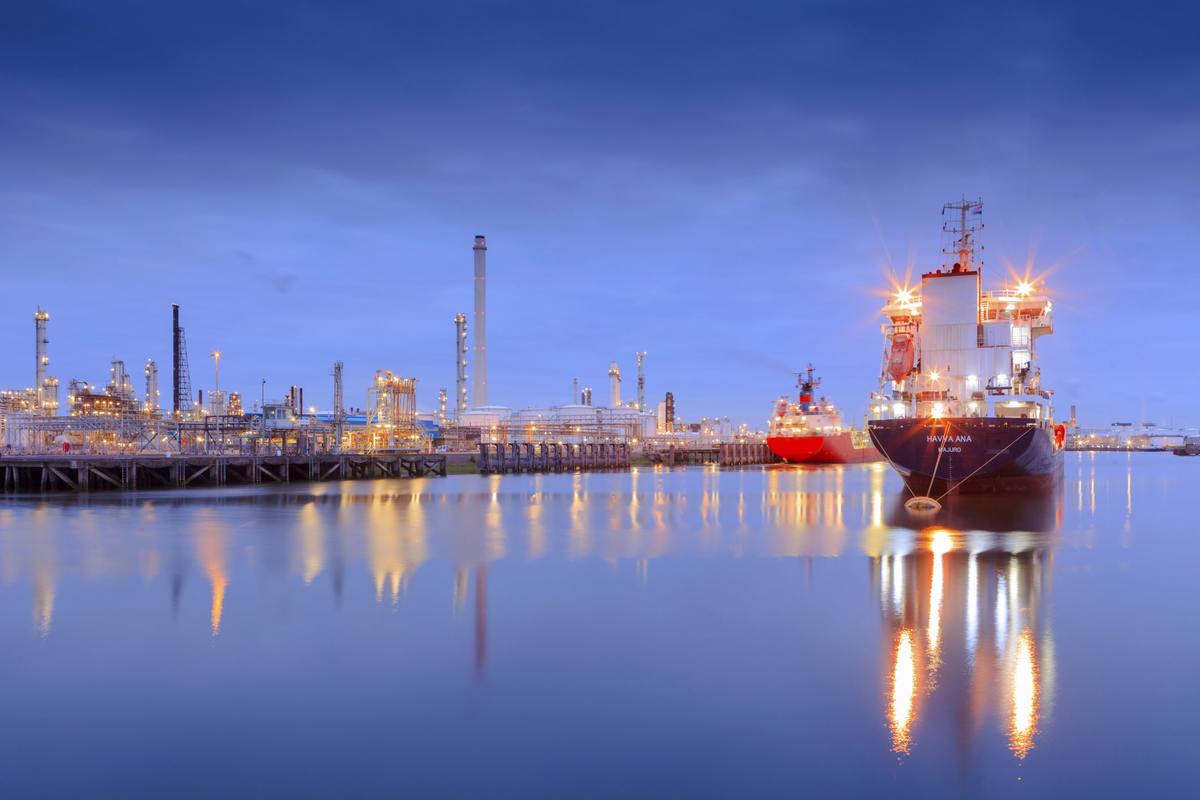The Week in Alternative Fuels 15 September 2023
It was a mixed bag this week, with some proposed government policies aimed at stimulating uptake of alternative marine fuels and others to curb possible overconsumption.
 PHOTO: Tanker in Port of Rotterdam at night. Getty Images
PHOTO: Tanker in Port of Rotterdam at night. Getty Images
A recent Global Maritime Forum (GMF) report highlighted the crucial role government regulations play in bridging the cost gap between conventional and alternative fuels. The report noted that government policies and subsidies could reduce cost gaps, improve alternative fuel availability and spur fuel adoption. This is turn projected to encourage private sector investments in green corridors.
African leaders and the European Commission (EC) also emphasised the importance of government support as they called on the world to craft a global carbon pricing policy. Their separate arguments had the same bottom line – to make polluters pay for emissions and use the revenue to develop low- and zero-emission fuels and technologies.
EC President Ursula von der Leye urged rest of the world's leaders to come up with a global carbon pricing proposal for the ever-crucial COP28 climate conference in November. The EU already has a carbon pricing mechanism called the EU Emissions Trading Scheme (ETS), which will soon cover shipping sector emissions.
African leaders have signed the Nairobi Declaration, which aims to put the debt-laden continent on an even keel with the rest of the world in combating climate change. They went one step further than the EC's von der Leyen by calling for fossil fuel trade, shipping and aviation to be included in carbon pricing. The Nairobi Declaration will form the basis of Africa's negotiating stance at COP28.
Besides EU ETS, the EU has pioneered a second regulation to decarbonise the shipping industry: FuelEU Maritime. With just over a year until the regulation will come into force in 2025, Norwegian law firm Wikborg Rein explained the benefits of pooling compliance between several vessels to meet regulatory targets. A pooling scheme will also incentivise more shipowners and operators to adopt alternative fuels, lawyers Knut Hausken Magnussen and Elise Johansen told ENGINE.
GMF recommended government subsidies to speed up alternative fuel adoption - and many countries are already working on this. The Dutch government, on the other hand, has proposed halving the country's marine biofuel subsidies. This is in part because marine biofuel subsidies have pushed biofuel supply away from road transport and towards bunkering, said Jaap Steensma, general press officer at the Dutch Ministry of Infrastructure and Water Management. The subsidies seem to have made biofuels too attractive for bunkering.
By Konica Bhatt
Here is our selection of top five alternative fuels stories from this week:
Rapid policy actions can de-risk green corridors and attract investments – GMF
EC President calls for global carbon pricing for COP28
Nairobi Declaration on climate change endorsed carbon tax on shipping
Wikborg Rein on how to pool compliance with FuelEU Maritime
Dutch government could slash biofuel subsidies because they are too effective






